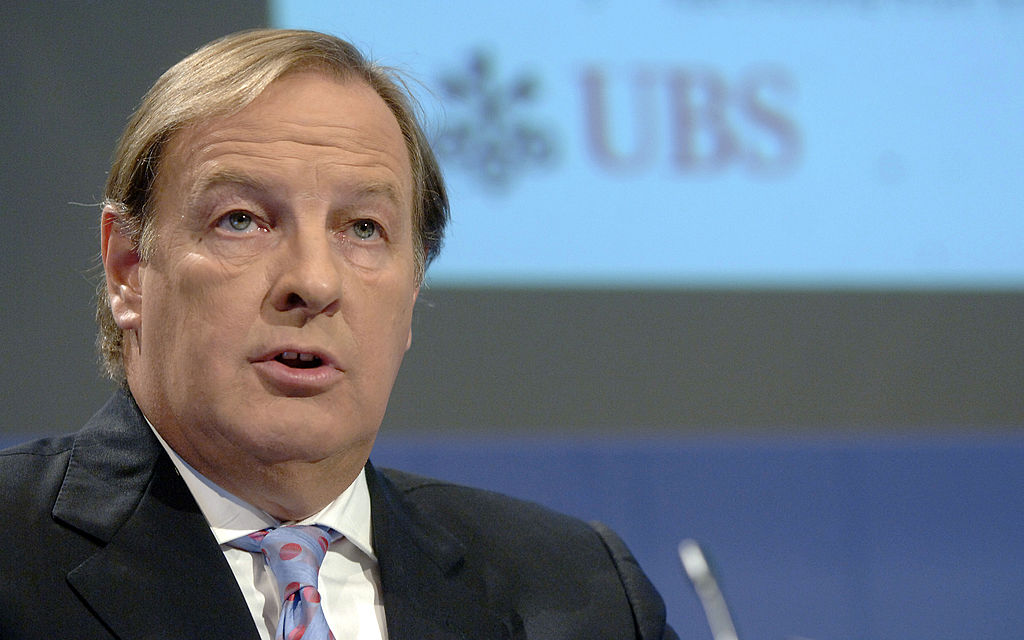MoneyWeek roundup: Why gold will fall to $1,300 an ounce this month
We round up some of the best articles from this week's magazine, the blog and our newsletters. This week: why gold is heading for a fall - for now; lessons in trading the euro; and why the inflation danger just keeps growing.

John Stepek highlights some of the best bits from our free emails, newsletters, blog and MoneyWeek magazine that we've published in the past week.
Inflation looks like being the big story for the first half of 2011. Food prices are at record highs. Oil prices are getting there. And in almost every part of the world, inflation in general is reaching uncomfortable levels - especially in Britain.
The Bank of England (BoE) can't do much about it, the argument goes. And it's probably true - unless wages start to pick up, the Bank is unlikely to move interest rates. As I noted in yesterday's Money Morning, it's China that we really have to watch. In some ways, the best thing that could happen would be that China takes the edge of its growth and so helps reduce raw material costs for the rest of us.
Subscribe to MoneyWeek
Subscribe to MoneyWeek today and get your first six magazine issues absolutely FREE

Sign up to Money Morning
Don't miss the latest investment and personal finances news, market analysis, plus money-saving tips with our free twice-daily newsletter
Don't miss the latest investment and personal finances news, market analysis, plus money-saving tips with our free twice-daily newsletter
Meanwhile, Europe had another week of highs and lows. Portugal began the week as a dead cert to go bust - yet by the end of the week the euro was rebounding and hope was back in European hearts.
Everyone knew of course, that the European Central Bank (ECB) wouldn't let the country's debt auction fail on Wednesday (a 7% yield was the dividing line between a pass and a fail; it managed to squeak a pass on 6.7%). I rather like Portugal, so I hope it can get over its woes without too much trauma - but it's still hard to see why this auction is such a resounding result.
The truth is that the main thing that got investors optimistic again was a hint of mellowing by the Germans. Basically, the future of the euro is in Germany's hands. If they decide to bail everyone else out, the show can be kept on the road for a lot longer. It'll exact a toll on Germany's creditworthiness of course, but maybe that's a price the Germans are willing to pay. We'll see.
The euro was given another boost by hints that the ECB would be quite willing - unlike the BoE - to raise interest rates if inflation goes much higher. The single currency ended the week on a high, rebounding to more than $1.34.
You can expect lots more highs and lows for the euro this year. One man who can give you good advice on how to trade them and other swings in the major markets is John C Burford, who writes the free MoneyWeek Trader blog and email. John takes trades that he's recently completed - both profitable and unprofitable ones - and talks his readers through them, and demonstrates the lessons you can learn about timing and most importantly, money management.
Even if you're not interested in spread betting - which is of course highly risky - I think his lessons are useful to anyone involved in any form of investing (I always make sure I read his emails, put it that way...). You should sign up here - as I said, it's completely free.
UK house prices are about the only inflation-free zone right now. The latest survey from Halifax showed that house prices fell by 3.4% last year in nominal terms (it'd be more if you include inflation of course).
You'll know that we're quite a bearish bunch on house prices at MoneyWeek of course, and I can't really see any reason to change our minds. The only thing that worries me slightly is that the general consensus seems to agree that prices will fall this year, and I never like being part of the crowd.
But in case you're wondering exactly what all these house price indices actually mean, my colleague Tim Bennett has made another of his video tutorials. This time he explains just what the biggest house price indices actually measure, and why they sometimes disagree with one another: Introduction to house price surveys.
On a more upbeat note, Merryn recently gave us her reasons to be cheerful for 2011. In response, we got some interesting comments from readers on her pieces (by the way, sorry if you've had problems commenting over the last few days - we've had some technical hitches which we're currently working on).
Technology and manufacturing were popular topics - I particularly liked this comment from 'IJ': "By increasing competition, cutting out middlemen, improving price transparency etc, the internet is a hugely deflationary force (I mean it in a good way) - this seems to get overlooked. Taking this further, just as it has done to other businesses, surely technology will ultimately cut the financial sector down to size. For example, rather than paying brokers huge fees to take them public, maybe companies will just do IPOs on some new improved financial eBay-type platform?"
It's a nice idea, although as bonus culture shows us, bringing proper competition to the banking sector might be an uphill struggle.
On the technology front, I've said this before, but I really like Dr Mike Tubbs' newsletter, Research Investments. It's partly because I enjoy the stories behind these stocks as much as anything else - but also because he, frankly, has a very good track record.
This week Mike's been talking about his Christmas presents. Or one in particular: "I was given a little torch that uses one of the new extra-bright LEDs. It's a smart little thing and I was eager to test it out. So I went out into the pitch black of the garden and pointed it in the direction of the old oak tree across the lawn.
"I was quite surprised to find just how bright and far-reaching the focused beam was. It's far better than the LED torches available just a year or so ago. And from what I've read in the reviews, my new torch is so energy efficient that the two small AA batteries will seem to last forever."
Being Mike, he immediately got to thinking about his readers' portfolios, and how to invest in the sector. He points out "the opportunities for much larger, brighter LEDs. I'm talking about industrial applications like traffic and rail signal lights, obstruction lights on masts, tall buildings and wind turbines and lighting for large warehouses.
"In each of these examples, energy efficiency, reliability and long life are vitally important. And that's where high brightness LEDs (HB-LEDs) come in. They can offer users huge cost savings and short payback periods. In fact, there is a potential $33bn market for these new improved LEDs and it's growing fast." Find out about Dr. Mike Tubbs' Research Investments here.
Dr Mike Tubbs' Research Investments is issued by Fleet Street Publications Limited which is authorised and regulated by the Financial Services Authority. www.fsa.gov.uk/register/home.do (FSA No 115234). Managing Editor: Frank Hemsley. Your capital is at risk when you invest in shares; never risk more than you can afford to lose. Past performance is not a reliable indicator of future results. Please seek independent financial advice if necessary. Fleet Street Publications Ltd 020 7633 3600.
We also look at energy efficiency as an investment theme in MoneyWeek magazine this week. The basic point is this - wasting less energy and making better use of the resources we have is a good thing in itself, regardless of your stance on climate change. It's also a comparatively easy way cut down on greenhouse gases and emissions, so it's something that will be pushed by target-setting governments around the world. James McKeigue looks at the best ways to invest in the sector here. If you don't already subscribe to MoneyWeek, you can subscribe to MoneyWeek magazine.
Oh yes, and in case you missed it, you really should read Dominic's Money Morning from last week, particularly if you've got money in gold, as I'm sure more than a few of you have.
You can't accuse Dominic of being wishy-washy - he's not afraid of sticking his neck out, which is just one of the many reasons I like his contributions to MoneyWeek. He reckons gold is going to fall to $1,300 an ounce by the end of January before recovering. Read his piece here to find out why.
Get the latest financial news, insights and expert analysis from our award-winning MoneyWeek team, to help you understand what really matters when it comes to your finances.
John Stepek is a senior reporter at Bloomberg News and a former editor of MoneyWeek magazine. He graduated from Strathclyde University with a degree in psychology in 1996 and has always been fascinated by the gap between the way the market works in theory and the way it works in practice, and by how our deep-rooted instincts work against our best interests as investors.
He started out in journalism by writing articles about the specific business challenges facing family firms. In 2003, he took a job on the finance desk of Teletext, where he spent two years covering the markets and breaking financial news.
His work has been published in Families in Business, Shares magazine, Spear's Magazine, The Sunday Times, and The Spectator among others. He has also appeared as an expert commentator on BBC Radio 4's Today programme, BBC Radio Scotland, Newsnight, Daily Politics and Bloomberg. His first book, on contrarian investing, The Sceptical Investor, was released in March 2019. You can follow John on Twitter at @john_stepek.
-
 High earners underestimate how much they need to retire comfortably
High earners underestimate how much they need to retire comfortablyHigh net worth individuals grossly misjudge how much money they need for a comfortable retirement, new data shows, with many not saving enough.
-
 Retired banker who gave wife £80m to avoid inheritance tax won’t face equal split in divorce
Retired banker who gave wife £80m to avoid inheritance tax won’t face equal split in divorceFamily lawyers say the Supreme Court ruling will have significant impact on high net worth divorce cases
